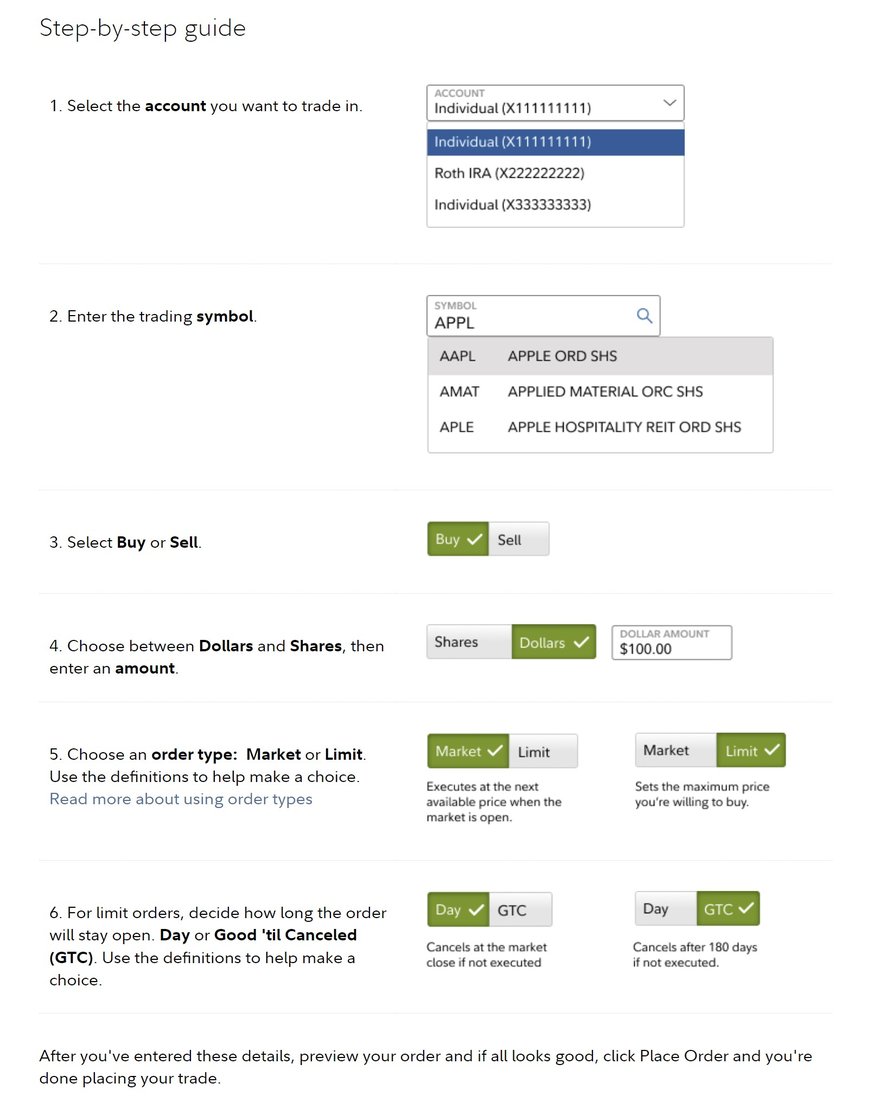As a general rule, it's not a bad thing when your product becomes a verb or a generic noun. Consider Kleenex. Xerox. Band-Aid. Tupperware. And, of course, Uber.
Although relatively new to the brand-name-as-a-generic concept, ridesharing company Uber (UBER -0.38%) founded in 2009 has already disrupted the transportation and food delivery markets and continues to expand. This article will explore the ins and outs of Uber -- its history, its performance, and, of course, how to invest in its stock.
Stock
What is Uber?
What is Uber?
When the ridesharing king began offering Uber stock in 2019, its initial public offering (IPO) was expected to be one of the hottest new investments in the stock market, valued at as much as $120 billion. And it was -- very briefly.
After starting trading at $45 per share, Uber stock dropped like a rock to $41.70, suffering the largest first-day loss in U.S. history. The news got worse from there, with Uber reporting a $5 billion loss and slowest-ever revenue growth only three months later.
Lately, however, Uber's fortunes have made a U-turn. After bottoming out at around $20 per share at the height of the COVID-19 pandemic, its stock price has risen above $60, boosted by a renewed focus on its two core businesses: ridesharing and food delivery.
If you had put $1,000 into Uber stock in May 2019, your investment would have grown to almost $1,450 by December 2023. It's also worth noting that while the S&P 500 has risen roughly 20% over the last year, Uber shares have made a monster comeback, posting a 149% gain in 2023.
How to buy Uber stock
How to buy Uber stock
If you want to buy shares of Uber, follow these four steps.
Step 1: Open a brokerage account
If you still need to open a brokerage account, these are some of the best-rated brokers and trading platforms. This step-by-step guide to buying Uber stock uses the five-star-rated platform Fidelity.
Fidelity makes it easy to buy stocks. Its website offers a video tutorial and step-by-step guide. Here's a screenshot of how to place a stock trade with Fidelity:

On this page, fill out all the relevant information, including:
- The number of shares you want to buy or the amount you want to invest to purchase fractional shares.
- The ticker symbol (UBER for Uber).
- Whether you want to place a limit order or a market order. The Motley Fool recommends using a market order since it guarantees you buy shares immediately at market price.
Step 2: Figure out your budget
Before you hit the "Place Order" button, determine your budget. Are you in a position to invest in the market? Have you paid down high-interest credit card balances and created an emergency fund?
How much can you spend? Do you want to buy all your Uber stock at once, or do you want to purchase shares periodically, with dollar-cost averaging? These are all very good questions for investors to ask -- and answer.
Step 3: Do your homework
The good times are rolling for Uber stock. However, it's important to keep in mind that even a disruptive business can be disrupted by factors outside its control.
In Uber's case, the company needs to keep an eye on variables like gas prices, increasing food costs slowing restaurant traffic, and legal issues, including lawsuits and increased regulatory oversight. Make sure you consider the risks and rewards before you buy Uber stock.
Step 4: Place your order
If you've decided the pros of investing in the company outweigh the cons, complete the order page, click the "Place Order" button at the bottom, and become an Uber shareholder.
Shareholder
Should I invest?
Should I invest in Uber stock?
You may want to skip Uber stock if:
- You believe competing ridesharing companies will take a bite out of Uber's market.
- You're worried about lawsuits and increased regulatory oversight of Uber.
- You expect inflation will continue to increase gas and food prices.
- You're wary of companies that have built their reputations on apps.
- You think Uber shares are trading at unrealistically high prices.
- Your portfolio already has enough tech, food, and transportation stocks.

On the other hand, you may want to go ahead and buy Uber stock if:
- You think Uber will continue to be the leading rideshare and food delivery company.
- You believe Americans will continue to rely heavily on restaurants and shared rides.
- You think the recent decline in inflation will continue for both food and gas prices.
- You'd like to balance your portfolio with a stock that crosses multiple sectors.
- You think Uber stock is undervalued and will rise as it expands into new markets.
- You're excited about Uber's plans to focus on creating value with stock buybacks.
Profitability
Is Uber profitable?
Let's face it: Uber has been somewhat notorious for not posting a quarterly profit. It has a history of essentially subsidizing rides to increase its number of customers and lock up potentially lucrative markets.
It didn't post a quarterly profit until the second quarter of 2023, more than a decade after its founding. Even then, its net income of $394 million included a $386 million unrealized gain on equity investments.
But has Uber turned the corner? It followed the second quarter of 2023 with a net income of $221 million, a considerable year-over-year bounce from a $1.2 billion loss in the third quarter of 2022.
Further, the company made almost 27 million trips per day. And it devoted almost $800 million to research and development (R&D) during the third quarter, announcing a partnership with autonomous vehicle company Waymo in Phoenix.
One good sign: Uber became part of the S&P 500 in December, meaning all S&P index funds had to buy its stock. The move gave Uber a short-term lift, with one Wall Street firm estimating that the index funds would need to buy about 200 million shares, worth approximately $12 billion in early 2024.
Dividends
Does Uber pay a dividend?
Money-losing companies seldom, if ever, pay dividends, and Uber is no exception. Indeed, it might be a good idea for investors to avoid holding their breath while waiting for one. A dividend is possible in the future, although share buybacks will likely be the company's preferred vehicle for driving shareholder value in the short term.
"We are now entering a phase where we are increasingly thinking about returning the capital to shareholders, either through dividends or buybacks, more likely with buybacks," Uber CEO Dara Khosrowshahi said at a September investment conference.
ETF options
ETFs with exposure to Uber
Despite its slow climb to profitability, a number of exchange-traded funds (ETFs) have acquired Uber stock. ETFs are an excellent way for investors to hedge their bets since they comprise a basket of similar stocks.
Exchange-Traded Fund (ETF)
A poor quarter from one stock in the ETF doesn't necessarily mean an investor will lose a large amount of value in their overall portfolio. Of course, the opposite is true, too: A booming quarter from one stock in the ETF generally isn't likely to move the needle of your fund very much.
According to ETF.com, 243 funds held 135.7 million shares of Uber in early 2024. The iShares U.S. Transportation ETF (IYT -1.26%) had 2.19 million shares of its holdings in Uber stock. The 14.65% weighting of its Uber stock was the most of any fund tracked by the site.
From a purely numerical standpoint, the SPDR S&P 500 ETF Trust (SPY 0.95%) held the most Uber stock. The large-cap fund owned almost 25.2 million shares of the ridesharing giant, only about 0.3% of its total portfolio.
Other ETFs with significant Uber holdings included the iShares Core S&P 500 ETF (IVV 0.98%) -- a large-cap fund with 20.6 million shares but only 0.3% of its overall fund -- and the Vanguard Total Stock Market ETF (VTI 0.93%), which held almost 14.4 million Uber shares, or 0.25% of its investments.
Stock splits
Will Uber stock split?
Again, investors probably don't want to bet the farm on an Uber stock split. A number of analysts are bullish on the company's prospects, given its recent profits and continued growth.
Stock Split
But most stock splits, especially in the tech sector, are designed to make shares more affordable for the average investor. Although Uber stock has been on the rise since its first quarterly profit was announced in late 2023, its share prices don't yet appear out of reach for the average retail investor.
The bottom line on Uber stock
Early signs are usually just that -- early signs. However, Uber share prices don't appear to be headed in reverse any time soon. The company is focusing on its bread and butter, is investing in R&D, and has relatively few red lights on its path.
Related investing topics
Despite its relatively bright outlook, Uber is subject to the same laws of gravity that govern all stocks, if not more so. As the energy, transportation, and food and beverage sectors go, so goes Uber. Although a slump in one sector isn't fatal, a broader economic downturn or recovery that turns anemic could lead to a bumpy road for the ridesharing leader.
Smart investors will do what smart investors always do: Research the company to determine its future prospects to see whether it's a good fit for a diversified portfolio based on a long-term buy-and-hold strategy. As a widely held stock, any risks Uber poses can be offset through investments in one of the 200-plus ETFs that own a piece of the company.
FAQ
How to invest in Uber FAQ
Is it good to invest in Uber?
No doubt, Uber is on a roll. It's one of few stocks to have doubled in value during 2023. As always, though, remember that past performance doesn't guarantee future results.
Can I buy shares in Uber?
Yes, Uber is a publicly traded company. You can buy shares in Uber through almost any brokerage.
Where can I buy Uber stock?
You can buy Uber stock from almost any online or brick-and-mortar brokerage.
Where will Uber stock be in five years?
It's impossible to say where any stock, let alone Uber, will be in five years. But remember, investing in the market over time is always better than trying to invest by timing the market.
































































































































































































































